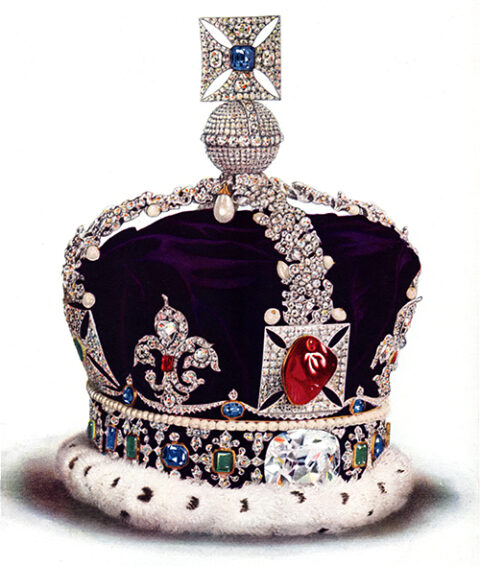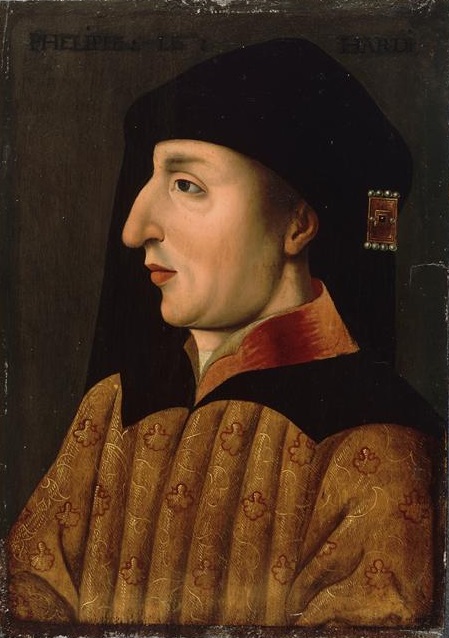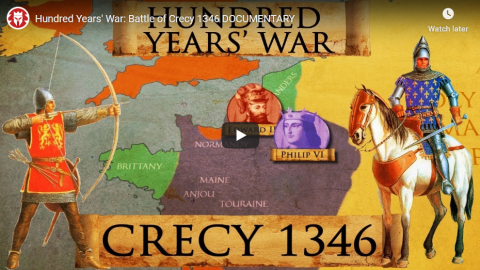If there’s one thing I’ve learned as a professional historian (aside from the fact that we’re all just big apes … and not particularly bright ones, either) it’s that the most powerful force in human affairs is not envy, not lust, surely not money, not even Wille zur Macht — it’s inertia. Nothing lasts forever, but even seemingly intolerable situations can continue all-but-indefinitely, provided there’s no clear alternative on offer …
… so long as the rulers keep the Mandate of Heaven.
That no doubt seems like a stolen base, as something as amorphous as the “Mandate of Heaven” can be stretched to cover just about anything, but it’s the best I can do to convey what I mean. And I think you’ll see the utility of it when we look at a few examples. The negative first: Since Usurpers are much in the news these days, look at any successful one. England’s Henry IV, for example, or Henry VII. They had endless troubles during their personal rule, as all the people who mattered knew them when they were just one noble among many. Their sons, on the other hand, sat about as easily on the throne as any medieval monarch could, and while some of that was no doubt due to their sterling personal qualities,1 a lot of it was simply, for lack of a better term, “the Mandate of Heaven” — the Usurper who delivered stability and competence in his lifetime passed on the purple to a stable, competent son, which proves the regime’s essential rightness.
In other words, inertia kicks in — just an object in motion tends to stay in motion, a competent regime continues competent, in public perception at least. Those who are old enough to remember the Wars of the Roses (etc.) are just grateful that they don’t have to go through it again, while the younger generations simply don’t know any different. So long as the usurper’s son isn’t both personally loathsome and egregiously incompetent, things will go on much as before. (And please note what an extremely high bar that is — we’re talking Nero- or Commodus-level loathsome incompetence. France spent a lot of the Hundred Years’ War under the “leadership” of a filthy lunatic who thought he was made of glass, and they came out ok … largely because soon after he kicked, it was England’s turn to suffer the long reign of a filthy lunatic, but still. It’s got to be spectacular on both counts to kick off a revolution).
Severian, “Witch Trial Syndrome”, Rotten Chestnuts, 2021-01-27.
1. Opinions are bitterly divided on Henry VIII even among the laity, and professionals carry on blood feuds about it, but everyone agrees that for all his faults, the young Henry VIII was a seriously impressive guy. Contemporaries certainly thought so — Erasmus was a professional ass-kisser, but Thomas More was dazzled by Henry, too, and More was a tough guy to fool.
July 23, 2023
QotD: Losing the Mandate of Heaven is fatal for a ruler
May 6, 2023
Face-palm-worthy Coronations of the past
I’m sure almost everyone — except the tiny number of Republicans in England — hopes for a smooth and spectacular Coronation for His Majesty King Charles III, there are plenty of examples of past Coronations that were anything but:

The Imperial State Crown, worn by the British monarch in the royal procession following the Coronation and at the opening of Parliament.
Wikimedia Commons.
Whereas so many traditions are 19th-century inventions, as any student of history knows, the coronation of Britain’s monarch is a rare example of a truly ancient custom, dating to the 10th century in its structure and with origins stretching back further, to the Romans and even Hebrews. As Tom Holland said on yesterday’s The Rest is History, it is like going to a zoo and seeing a woolly mammoth.
It is a sacred moment when the sovereign becomes God’s anointed, an almost unique state ceremony in a secular world. The custom originates with the late Roman emperors, associated with Constantine the Great and certainly established by the mid-fifth century in Constantinople. In the West, and following the fall of that half of the empire, barbarian leaders were eager to imitate imperial styles (a bit like today). Germanic and Celtic tribes had ceremonies for new leaders in which particular swords were displayed, a feature of later rites, but as they developed the practice of kingship, so their rituals began to imitate the Roman form.
[…]
Athelstan, the first king of England, had been crowned in 925 at Kingston, a spot where seven kings of England had been enthroned. Perhaps the most notorious was Edwig, a 16-year-old whose proto-rock star qualities were not appreciated at the time of his coronation in 955. Indeed he failed to turn up, and when Bishop Dunstan marched to the king’s nearby quarters to drag him along, he found the teenager in bed with a “strumpet” and the strumpet’s mother.
However, Edwig died four years later, and Dunstan was elevated to Canterbury, became a saint and, through chronicles recorded by churchmen, got his version of history.
This reign might seem impossibly distant and obscure, yet it was under Edwig’s brother Edgar that the current coronation format was established. Edgar was a powerful king, and the last of the Anglo-Saxon rulers to live a happily Viking-free existence. His coronation on 11 May 973 was an illustration of his strength, and also his aspirations. Held at Bath, most likely because of its association with Rome, it involved a bishop placing the crown on the king’s head, in the Carolingian style, and would become the template for the ceremony for his direct descendent Charles III.
But not all coronations would run so smoothly. After Edgar’s death his elder son Edward was killed in possibly nefarious circumstances, and his stepmother placed her son Ethelred on the throne. Ethelred’s reign was plagued by disaster, and it was later said in the chronicles — the medieval equivalent of “and then the whole bus clapped” Twitter tales — that Bishop Dunstan lambasted the boy-king for “the sin of your shameful mother and the sin of the men who shared in her wicked plot” and that it “shall not be blotted out except by the shedding of much blood of your miserable subjects”.
This would have been merely awkward, whereas many coronations ended in riot or bloodshed. The most notorious incident in English history occurred on Christmas Day 1066: Duke William got off to a bad start PR-wise when his nervous Norman guards mistook cheers for booing and began attacking the crowd, before setting fire to buildings.
[…]
Perhaps the most scandalous coronation took place at the newly completed St Paul’s Cathedral in February 1308. The young queen, Isabella, was the 12-year-old daughter of France’s King Philippe Le Bel, and had inherited her father’s good looks, with thick blonde hair and large blue, unblinking eyes. Her husband, Edward II, was a somewhat boneheaded man of 24 years whose idea of entertainment was watching court fools fall off tables.
It was a fairy tale coronation for the young girl, apart from a plaster wall collapsing, bringing down the high altar and killing a member of the audience, and the fact that her husband was gay and spent the afternoon fondling his lover Piers Gaveston, while ignoring her. Isabella’s two uncles, who had made the trip from France, were furious at the behaviour of their new English in-law, though perhaps not surprised.
[…]
One of the most disastrous coronations occurred during the Hundred Years’ War. Inspired by Joan of Arc, in 1429 the French had beaten the English at the Battle at Patay, after which their leader Charles VII entered Reims and was crowned at the spot where the kings of France had been enthroned for almost a thousand years. In response, on 26 December 1431 the English had their candidate, the 10-year-old Henry VI, crowned King of France at Notre-Dame in Paris, where one road was turned into a river of wine filled with mermaids, and Christmas plays were performed on an outdoor stage.
Unfortunately, the coronation was a complete mess. The entire service was in English, the weather was freezing, the event rushed, too packed, filled with pickpockets, and worst of all the English made such bad food that even the sick and destitute at the Hotel-Dieu complained they had never tasted anything so vile.
January 22, 2023
QotD: Evolution of the nation-state
The Hundred Years’ War laid the foundations for the modern state. Exaggerating only a little for effect, when “England” and “France” went to war over some convoluted feudal nonsense in 1337, nobody not directly in the armies’ path cared. By 1453, though, both sides had to clearly articulate just why they were fighting in order to keep the war going. “National chauvinism” turned out to be a pretty good answer for the French — who, after all, were on the receiving end of most of the physical damage — but it worked ok for England, too. Early Modern English history makes a lot more sense when you know about the Pale of Calais.
It took the rest of Europe another 150 years, but the Thirty Years’ War did the trick. What started as another of the endless doctrinal conflicts kicked off by the Reformation ended with the creation of the modern nation-state. Cardinal Richelieu really was a Cardinal — a prince of the Roman Catholic Church, a guy with a legitimate chance of being elected Pope. This man brought Catholic France into the war on the Protestant side for “reasons of state”. This made sense in 1631 … and the war still had another 17 years to run.
Speaking of, the treaty that ended the Thirty Years’ War, the famous Peace of Westphalia, is credited with creating the modern nation-state. Which it did, but since we decided back in 1946 that nationalism was the worst possible sin, we Postmoderns forgot what everyone around the treaty table knew: That “nation” and “state” are inseparable. The nation-state, which for clarity’s sake will henceforth be known as the ethno-state, is the biggest stable form of human organization.
Severian, “The Libertarian Moment?”, Rotten Chestnuts, 2020-03-19.
November 18, 2021
When artillery became powerful enough to literally destroy castles
In Quillette, Paul Lockhart recounts one of the early artillery successes in European siege warfare, the reduction of the English-held fortifications at Odruik:

Portrtait of Philip the Bold (Philip II, Duke of Burgundy), 1342-1404.
Unknown painter of the Flemish School via Wikimedia Commons.
Philip the Bold, duke of Burgundy, was a warrior’s warrior. Hawk-nosed, ambitious, and brash, Philip had been a soldier since childhood. He was still a smooth-faced boy of 14 when he fought alongside his father, King John II of France, in the battle of Poitiers in 1356. Like King John, he was taken prisoner by the English when Edward, the Black Prince of Wales, vanquished the French on the field at Poitiers. A decade later, the duke, always looking for an advantage over the Englishmen who had invaded his country, embraced a novel technology: gunpowder.
This mysterious Asian invention had been known in Europe for more than a century, and for nearly that long European armies had used it as a weapon of war — or, more precisely, as the substance that made another recent innovation, the cannon, work. So far, gunpowder artillery had not shown great promise. Cannon had been used as siege engines in European warfare at least as early as the 1320s. But for all the trouble and effort they demanded, they had not proven themselves to be much more effective than conventional siege weapons such as catapults and trebuchets, machines that used mechanical energy to hurl projectiles at castle walls. Certainly, the early cannon did not appear to be effective enough to justify their cost, which was substantial.
But Philip the Bold saw promise in the new weapons, especially the huge siege guns that came to be known as bombards, and in 1369 he began to invest heavily in them. France and England were then locked in the on-again, off-again series of dynastic conflicts known today as the Hundred Years’ War (1337–1453). In 1377, when Duke Philip’s brother and sovereign, King Charles V of France, ordered him to attack the English in the Calais region, the duke answered the call, bringing with him more than 100 new cannon, including one monster of a gun that fired a stone cannonball weighing some 450 livres (around 485 pounds).
One of the duke’s intended targets was the English-held castle at Odruik, built with stout masonry walls and surrounded by a thick layer of outworks. Odruik would be a tough nut to crack. Its defenders seemed to think so, too, and were confident that they could hold out against Duke Philip’s army, even as the duke’s men began to put their huge siege cannon into position in full view of the castle walls.
The first few shots from Philip’s siege-battery hammered Odruik’s outer walls into dust. Soon, the stone cannonballs were sailing through the walls as if they weren’t there; soon after that, the outer walls actually weren’t there. After Philip’s guns had fired a grand total of about 200 rounds, much of Odruik’s once-proud walls lay in ruin, and before the duke could send his men through the breach and into the castle, Odruik’s defenders capitulated.
Philip the Bold’s triumph at Odruik in 1377 was a harbinger of things to come, a revealer of unsettling truths. Gunpowder artillery had been used in sieges before, but Odruik was its first overwhelming and clear-cut victory over a castle. The siege of Odruik demonstrated that — when the guns were big enough, and when there were enough of them — cannon were more powerful than any siege engine yet invented, and could knock down castles in a matter of hours. What happened at Odruik would be repeated over and over again at castles throughout continental Europe and the British Isles through the remainder of the Middle Ages and beyond.
It was one of the accepted “rules” of war that a besieged town that surrendered before the beseiging army conducted an infantry assault would be spared from sack … the theory being that once the fortifications had been overcome, the final outcome was not in doubt and the defenders lost no honour from the surrender. You can certainly understand why the citizens of the defended town would be eager to avoid the plunder and rapine of an assaulting army once the walls were breached.
April 13, 2021
QotD: The Hundred Years’ War and information velocity
One of the reasons the “Hundred Years’ War” lasted so long, they’ll tell you first off, was that it was punctuated by long periods of (relative) peace. Another was the inability of medieval militaries to conquer and hold territory — the feudal system really doesn’t work for garrisons. Most important, though, was the fact that the “countries” fighting were no such thing. In medieval parlance, “France” and “England” meant “the person of the monarch, plus his immediate feudal retinue.” Your average peasant might’ve been aware, in some vague theoretical way, that his lord’s lord’s lord owed homage to some guy called “Edward III” or “Jean II,” but unless ol’ Whatzisface was actually marching through with an army, it didn’t matter in the slightest. “France” was as abstract a notion as “Christendom” …
… at least in the early phases of the war. Low information velocity meant that even big changes at the top — the capture of the King at Poitiers, say — didn’t have much impact out in the sticks. By the time you found out about it, you’d been “subjects” of “England” for months, years, decades. Whatever, it didn’t matter, since the whole thing worked like loan sharking in Mob movies. Does it matter if it’s Rocco or Vito who’s collecting the vig this week? Maybe the Godfather got rubbed out, and now all the under-bosses from the Solozzo family report to the new capos of the Corleone family. None of that matters to you. All you know is, the new guy is going to break your legs if you don’t pay, same as the old guy would’ve done.
By the war’s later phases, though, the velocity of information had dramatically increased. Necessity is the mother of invention, and the French have always had a knack for cultural propaganda. Joan of Arc wasn’t worth much, militarily, but it’s one hell of a story, the kind that rallies troops. Nobody cares who the legal King of France is — that is, the guy whose name the lawyers finally hack out of the undergrowth of however-many family trees. The guy who is divinely anointed, though, by a prophet, in person? That’s a big deal. That’s the kind of story that spreads like lightning; the kind of story that makes “France” far more than just the name at the top of the org chart.
Moreover, the new guy — the divinely ordained guy — is competent. You can tell, because he’s winning. Your average feminist scholar knows as much about strategy as she does about heterosexuality, so we can ignore all their claims about Joan’s military genius. There are times when total incompetence is, in fact, a virtue, and this was one of them. Joan’s military strategy didn’t make any sense, because she wasn’t thinking in military terms — which is why it worked. Victory followed victory, until the English got wise … by which point it didn’t matter, because the Dauphin had been crowned as Charles VII and had solidified power behind him. In fact, you don’t have to be Machiavelli to see that Joan’s capture and execution by the English were all to Charles’s benefit — Charles gained a martyr to his cause, but only after Henry VI finally managed to beat a little girl. Information velocity guaranteed that both stories were all over France almost from the minute they happened.
Over in England, meanwhile, it was their turn to have an insane, incompetent king, and we know how that turned out. The point is, you can have a bad king. You can have a mad king. You can even have a bad, mad king and things can still work out ok — see Charles VI, who remained King of France for 42 years of the Hundred Years’ War despite believing he was made of glass — provided your mad, bad king reigns in a period of low information velocity. Not that things were hunky-dory in France from 1380-1422 — you know, Agincourt and all that — but the Charles VII who was anointed by God via Joan of Arc was the mad, bad guy’s direct lineal descendant. Charles VII’s main antagonist, Henry VI, was also a mad, bad king, and his successor, Henry Tudor … well, you know. I don’t think it’s an accident that the printing press was invented in the 1440s and made its first appearance in England in 1476, in the nastiest part of the Wars of the Roses.
Severian, “Crises”, Rotten Chestnuts, 2020-12-25.
June 16, 2020
QotD: A thumbnail history of the English language
Languages are anything but static. Some change very slowly, like French — which owes much of its ponderousness to a government department specifically tasked with rooting out heretic words that creep in from the outside. Other languages undergo periods of very rapid change — the English of Chaucer (late 1300s) would be very confusing to Shakespeare (late 1500s and early 1600s). Two hundred years seems like a long period of time, but in the history of an entire country, it’s a drop in the bucket.
English doesn’t just borrow words; it lifts whole phrases and grammatical ideas from other languages without so much as a by-your-leave. With the coming of the Saxons to Britain, Germanic languages crashed headlong into Brythonic and became Old English. Then the Vikings went for a multi-century beer run starting in the late 700s and left behind a bunch of Norse words, because who doesn’t invent a new language every time they go out carousing? In 1066, William the Bastard decided he didn’t like his name, and brought Norman French with him when he went to the town clerk’s office to have his name legally changed to William the Conqueror.
For the next two hundred years, the English upper classes spoke French and the lower classes spoke a zillion dialects of Middle English (travel was difficult for poor people, so regional variations survived). All legal business was done in French, which was often translated on the spot into Latin for the official records. A person couldn’t even submit a legal plea in English until 1362. But with the start of the Hundred Years’ War in 1337, Edward III decided that speaking French was très passé, and began encouraging English as a spoken and written language, with a little French thrown in, just to keep things interesting. And ever since, English has been debating how sophisticated it wants to be, while making rude gestures across the Channel at France and grumbling when the French sneer northwards.
Blake Smith, “A Brief History of English and Why it Matters”, Mad Genius Club, 2018-03-07.
June 5, 2020
Hundred Years War | 3 Minute History
Jabzy
Published 18 Oct 2015Thanks to Xios, Alan Haskayne, Lachlan Lindenmayer, William Crabb, Derpvic, Seth Reeves and all my other Patrons. If you want to help out – https://www.patreon.com/Jabzy?ty=h
Apologies, especially to the Patreon supporters for not uploading recently, I’ve changed jobs/moved house etc. I should be back on the usual schedule now.
Plus, thanks for the 12,000 subs.
April 14, 2020
History Summarized: England
Overly Sarcastic Productions
Published 10 Apr 2020English history has a reputation for being nigh incomprehensible — what with all the kings, civil wars, succession crises, and slapfights with France. But with the right perspective (and a little royal-restraint), England can become quite a straightforward story. So let’s take a look at this slice of Britain, and see how it grew into the master of the Isles.
SOURCES & Further Reading: “History of England from the Tudors to the Stuarts”, lecture series for The Great Courses by Robert Bucholz, a great look at Renaissance and Early Imperial England.
“Ten Minute History of England and Britain” Parts 1-18, by History Matters, a lengthy chronicle of English history from the Roman conquest through the Union of the Crowns. Good watch if you have the time.
Foundation by Peter Ackroyd, the first book in a mammoth 6-volume History of England, which covers everything up to the death of Henry VII. If you really want to dig into English history, this is the book for you.This video was edited by Sophia Ricciardi AKA “Indigo”. https://www.sophiakricci.com/
Our content is intended for teenage audiences and up.PATREON: https://www.Patreon.com/OSP
DISCORD: https://discord.gg/h3AqJPe
MERCH LINKS: https://www.redbubble.com/people/OSPY…
OUR WEBSITE: https://www.OverlySarcasticProductions.com
Find us on Twitter https://www.Twitter.com/OSPYouTube
Find us on Reddit https://www.Reddit.com/r/OSP/
January 15, 2020
Hundred Years’ War: Battle of Crecy 1346
Kings and Generals
Published 7 December 2017The Hundred Years’ War of 1337-1453 between France and England is one of the most crucial conflicts in the history of Europe. It changed the social, political and cultural outlook of the countries involved, influenced the change in warfare, brought the end of feudalism closer. The first phase of this war is called the Edwardian War, and one of the most decisive engagements of this conflict was the battle of Crecy (1346). This series will have 5 videos, so don’t hesitate to like, subscribe and share. And if you want to support us, you can do it on Patreon: http://www.patreon.com/KingsandGenerals or Paypal: http://paypal.me/kingsandgenerals
We are grateful to our patrons, who made this video possible: Ibrahim Rahman, Koopinator, Daisho, Łukasz Maliszewski, Nicolas Quinones, William Fluit, Juan Camilo Rodriguez, Murray Dubs, Dimitris Valurdos, Félix Gagné-Dion, Fahri Dashwali, Kyle Hooton, Dan Mullen, Mohamed Thair, Pablo Aparicio Martínez, Iulian Margeloiu, Chet, Nick Nasad, Jeyares, Amir Eppel, Thomas Bloch, Uri Sternfeld, Juha Mäkelä, Georgi Kirilov, Mohammad Mian, Daniel Yifrach, Brian Crane, Muramasa, Gerald Tnay, Hassan Ali, Richie Thierry, David O’Hare, Christopher Commins, Chris Glantzis, Mike, William Pugh, Stefan Dt, indy, Bashir Hammour, Mario Nickel, R.G. Ferrick, Moritz Pohlmann, Russell Breckenridge, Jared R. Parker, Kassem Omar Kassem, AmericanPatriot, Robert Arnaud, Christopher Issariotis, John Wang, Joakim Airas, Nathanial Eriksen and Joakim Airas.
This video was narrated by our good friend Officially Devin. Check out his channel for some kick-ass Let’s Plays. https://www.youtube.com/user/Official…
The Machinimas for this video is created by one more friend – Malay Archer. Check out his channel, he has some of the best Total War machinimas ever created: https://www.youtube.com/user/Mathemed…
Inspired by: BazBattles, Invicta (THFE), Epic History TV, Historia Civilis and Time Commanders
Machinimas made on the Total War: Attila engine using the great Medieval Kingdoms mod.
Production Music courtesy of Epidemic Sound: http://www.epidemicsound.com
August 19, 2019
Joan of Arc – Lies – Extra History
Extra Credits
Published on 17 Aug 2019Writer Rob Rath talks about all the cool stories and facts we didn’t get to cover in our recent series on the hated and beloved Joan of Arc.
Join us on Patreon! http://bit.ly/EHPatreon
From the comments:
Extra Credits
2 days agoRecommended reading:
– Joan of Arc: A History, by Helen Castor
– Joan of Arc by Herself and Her Witnesses, by Régine Pernoud
– Orléans, 1429: France Turns the Tide, by David Nicolle
4:01 – really cool side characters that didn’t make the final video script (but did show up in Game of Thrones??)
8:12 – multiple versions of Joan’s meeting with Charles
10:48 – all the other famous people we didn’t mention, including Gilles de Rais
13:11 – Joan really did have excellent tactical acumen, which we had to gloss over in her later battles
19:55 – what’s next on Extra History
21:17 – Six Degrees of Walpole
August 16, 2019
QotD: It’s not really accurate to call the French “cheese-eating surrender monkeys”
It is a truth universally acknowledged that, en masse if not individually, E2 has a slight nagging tendency towards anti-French sentiment. For the Brits it’s sort of traditional/historic, dating back to the Hundred Years War and all that (in which the English gloriously won, as they will be sure to note, at Crecy and Agincourt; strangely, at the end of it all, the French owned all of France, including the bits that the English had owned previously) and quite a lot of subsequent ones, mainly fought in Belgium, while for the Americans it seems to be something to do with the fact that they needed French help to run a revolution properly, along with the proximity of uppity Quebeckers and the fact that the French are marginally less prepared than the rest of the world to roll over and be McDisneyfied™; not being one I can’t say definitively. But I digress.
When it comes to military history, this particular bias mostly comes out in references to three weeks in May 1940, and specifically one piece of particularly crap judgement by General Gamelin and one bypassed fortress line. The fact that that the allied participants — France, Britain, the Netherlands and Belgium — have spent most of the time since blaming each other and trying to work out who sold out whom has been allowed to mask the fact that this particular campaign was successful beyond all reasonable expectations for the Germans, and that when the French actually had troops in the right places, they were perfectly capable of fighting the advancing Panzers to a standstill at a tactical or operational level. Visitors to Paris may wish to note that the big — rather bigger than you think until you actually see it in the flesh — structure at one end of the Champs Elysées is called the Arc de Triomphe, and not the Arc de Defaite; it bears an admittedly tedious and tasteless, but indubitably long, list of battles at which the French did rather well. The fact that your school history lessons may have taught you rather more about Paul Revere or Clive of India than about Charles Martel is not relevant in the greater scheme of things.
Albert Herring, “Why neither the French nor the Italians are the worst military nation”, Everything2, 2002-01-07.
August 5, 2019
Joan of Arc – Heroine or Heretic? – Extra History – #5
Extra Credits
Published on 3 Aug 2019Join us on Patreon! http://bit.ly/EHPatreon
Joan had been sold out to the English. Bishop Pierre Cauchon was determined to prove the inaccuracy of her visions and her motivations so that Charles could have no claim to the throne. But Joan held on till the bitter end.
July 28, 2019
Joan of Arc – Thy Kingdom Come – Extra History – #4
Extra Credits
Published on 27 Jul 2019Join us on Patreon! http://bit.ly/EHPatreon
City after city surrendered to Joan of Arc without a fight. Her mission was complete… or was it?
July 22, 2019
Joan of Arc – The Maid of Orleans – Extra History – #3
Extra Credits
Published on 20 Jul 2019Join us on Patreon! http://bit.ly/EHPatreon
When Joan met the army of Orleans, they weren’t exactly keen on her idea to just GET ‘EM and go completely offensive — thinking she would have more use as a mascot. But both they, and she, would be in for many surprises…
July 14, 2019
Joan of Arc – Angels and Demons – Extra History – #2
Extra Credits
Published on 13 Jul 2019Joan of Arc was on a mission from God — a mission to guide the Armagnacs into a holy war.
Follow us on Instagram: http://bit.ly/ECisonInstagramJoin us on Patreon! http://bit.ly/EHPatreon











